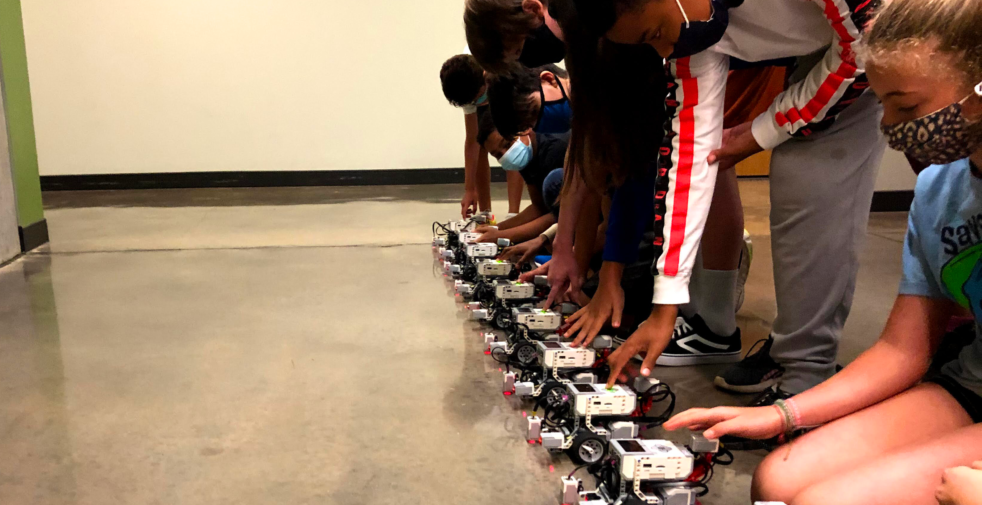Since June 7, Tech’s Center for Education Integrating Science, Mathematics, and Computing (CEISMC) has been offering various summer programs for K-12 students. The programs, offered in both a virtual and in-person format, will last until July 23.
The Technique recently reached out to Sirocus Barnes, the Director of Student Programs at CEISMC, to learn more about the K-12 summer programs and the Center itself.
“CEISMC is Georgia Tech’s K-12 Education Research and Outreach Center. Annually, CEISMC programs impact more than 39,000 students, 1,700 teachers, 200 schools in over 75 school districts throughout the state of Georgia,” Barnes said. “The unit works closely with public and private stakeholders to expand the reach of the Institute’s STEM education efforts in urban communities near Georgia Tech as well as those in rural school districts throughout the state of Georgia.”
CEISMC hosts classes, workshops and various programs for K-12 students outside of the traditional school day during the after school hours, weekends and summers. The programs have the goal of inspiring interest in STEM enrichment.
This summer, CEISMC is hosting two opportunities for K-12 students: Summer P.E.A.K.S (Programs for Enrichment and Accelerated Knowledge in STEAM), an in-person option, and STEAM Whistle Workshops, a virtual option.
“We actually started our virtual programs in response to COVID-19,” Barnes said. “We knew that we couldn’t provide programs on-campus in Summer 2020 and wanted to ensure that we continued to provide our same high quality summer learning experience, so we created STEAM Whistle Workshops.”
This summer’s virtual programs will include a mix of synchronous and asynchronous learning, group projects and virtual lab tours.
“We took all of the lessons learned from last year through feedback from our students and their families to enhance the virtual learning experiences of this summer,” Barnes said.
This year’s in-person programs will be altered slightly for COVID-19 with fewer slots available for each session and no family showcase to ensure social distancing.
Other protocols such as daily health screenings, face masks and frequent cleaning will also help to make the summer programs safe.
Each summer, CEISMC’s summer programs focus on a variety of topics with differing activities geared to elementary, middle school and high school students.
Barnes said, “Workshops and offerings are based off interest of past participants, current trends in K-12 STEM education and GT faculty who want to connect K-12 students to the research that is taking place on campus.”
Topics this summer include Lego Robotics, Game and App Development, Weather Forecasting, Kitchen Chemistry and many others. Several summer programs also have a focus on the 17 United Nations Sustainable Development Goals (SDGs) to follow Tech’s new mission and strategic plan to help promote, implement and advance the SGDs at the Institute.
Both the Summer P.E.A.K.S and STEAM Whistle Workshops are taught by Tech faculty, staff and students as well as area teachers and STEAM professionals.
“In order to do this work well, it takes the CEISMC Student Programs team which includes full-time CEISMC colleagues, Georgia Tech student assistants, K-12 educators and the support of the Georgia Tech administration,” Barnes said. “I am thankful to everyone that plays a part in supporting our work.”
Each workshop lasts about a week, and scholarships are available for students who may not be able to afford the program fee.
The summer workshops provide many benefits for K-12 students.
“[They] explore STEM content in fun and engaging ways,” Barnes said. “Our feedback from participants consistently year after year is that our programs teach them new STEM content [which creates] increased engagement and interest in STEM and STEM careers.”
This outcome is the goal of CEISMC and Tech’s K-12 STEM Connection: to reduce the barrier between K-12 and higher education and to lead systemic changes to increase STEM interest and achievement for all students, especially underrepresented students.
As Barnes states, it takes a village to “increase the pipeline of underserved and underrepresented K-12 students into STEM majors and careers … and Georgia Tech is part of that village.”
To Barnes, working for CEISMC and helping to create its summer programs is “one of the most rewarding jobs on campus.”
“My team and I get to design fun learning experiences for K-12 students to prepare the next generation of STEM professionals,” Barnes said.
